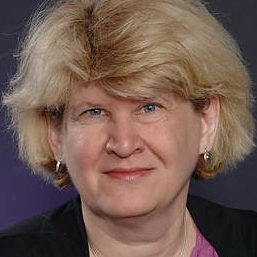
Julie Jacob is a communications professional and writer who focuses on healthcare and technology issues.
Plan ahead to make your dollars go further
Financial planners describe a secure retirement as a “three-legged stool” consisting of Social Security, a pension, and ample savings. But for about 40% of retired adults, retirement income balances precariously on the one skinny leg of Social Security.
Someone may end up relying solely on Social Security in retirement for many reasons, says Anne Wieboldt, a daily money manager for North Shore Senior Center in Northfield.
Many people never earned enough to tuck away money in a retirement savings account. Others may have overspent, racked up credit card debt, or drained their retirement savings to help out an adult child, she says.
“It is common in our culture to avoid planning or thinking about the future,” Wieboldt says. “It is important to know that procrastinating personal financial tasks creates money stress.”
But while Social Security provides a safety net, it’s not necessarily a lot of money to live on. Monthly checks replace about 40% of your pre-retirement income and pay an average monthly benefit of $1,658.
Here are some tips to stretch your Social Security dollars in retirement and ease the financial strain.
Wait to claim
Adults can begin claiming Social Security benefits as early as age 62. But the most important step to maximize Social Security payments is to wait until at least full retirement age (age 67) to initiate a claim.
“If you claim at 62, you may receive 25% to 30% less than if you waited until your full retirement age,” says financial consultant Michael Stewart, owner and founder of Crystal Lake Tax and Financial in Crystal Lake.
If a person waits until age 70 to start claiming Social Security benefits, they will receive an 8% boost in payments for each year between age 67 and 70. But there’s no incentive to delay filing for benefits after 70.
If you need to claim early due to an event such as a job loss or health issue, but your situation changes and you no longer need to draw Social Security, you have one chance for a do-over. However, it must happen within 12 months of filing, and you must repay whatever you received in Social Security payments.
“You have to pay back that amount in full, but then it’s like you never claimed it,” Stewart says.
For example, if someone collected Social Security benefits of $1,500 a month for three months and then decided to stop collecting from Social Security and reapply in a few years, they would have to pay back $4,500. Coming up with that money may be challenging with a limited income, but if the person reapplies later they would get a higher monthly benefit.
Another benefit of waiting until full retirement age to claim Social Security is that you can earn supplemental income without penalties, Stewart says. If you take Social Security before full retirement age while you are earning income from a job, your benefit will be reduced.
For instance, in 2022, if you claim Social Security before full retirement age, the Social Security Administration starts withholding $1 in Social Security benefits for every $2 you earn over the $19,560 limit.
In the year you reach full retirement age, Social Security will deduct $1 in benefits for every $3 you earn above $51,960, for the months until your birthday.
But after full retirement age, that earnings limit disappears. Your earnings will no longer reduce benefits.
It’s complicated, so individuals might want to consult a financial planner to discuss strategies for maximizing Social Security. Many financial planners will do a simple consultation for free for clients with limited means, Stewart says.
Find discounted services and assistance
In addition to maximizing Social Security payments, it’s also important to make those dollars go as far as possible. Aggressive steps for saving money include moving to a state with a lower cost of living, taking in a roommate, or moving in with family.
Smaller steps can make a big difference in retirement, too. Contact a local Area Agency on Aging or caregiver resource center to get connected to programs that help you develop a budget and receive financial help, such as assistance with paying utility bills. The money management services help older adults tackle a variety of financial issues, Wieboldt says.
“We helped one client who had too much debt and was having problems paying his taxes. [Sticking to] a budget raised his awareness of his cash flow and allowed him to pay off debt quickly and get caught up on back taxes,” Wieboldt says. “Another client was an older person who wanted to simplify her bill payments and learn how to use electronic banking.”
Catholic Charities of the Archdiocese of Chicago also connects older adults with services to assist with their financial concerns, says Debra Bohli-Mitchell, a senior care coordinator supervisor for the organization. While Catholic Charities does not offer financial counseling, it has a robust database of services to help older adults who are living off their Social Security benefits.
For example, Catholic Charities links clients with services that help them pay their Medicare premiums, get discounted rates on license plate stickers, obtain free bus passes, or find subsidized housing.
“It’s important to call and see what services are available,” Bohli-Mitchell says.
No matter your financial circumstances in retirement, and whether you are relying on Social Security payments or have other savings, Wieboldt stresses that planning always helps.
“Sometimes people are overwhelmed by a to-do list, but if you get started with one thing, that will reduce your stress, and you will want to do the next thing,” she says. “It really is one step at a time.”
Financial Retirement Planning Resources
AARP | moneymap.aarp.org
AARP’s Money Map tool is available to non-AARP members and helps people develop a plan for managing a variety of financial situations, such as paying down debt, saving for unexpected expenses, or creating a budget.
Social Security Administration | ssa.gov
Create an account online, check your estimated benefits, apply for benefits, and obtain answers to common questions.
Women’s Institute for a Secure Retirement wiserwomen.org
WISER provides information and resources to help women plan for retirement.






